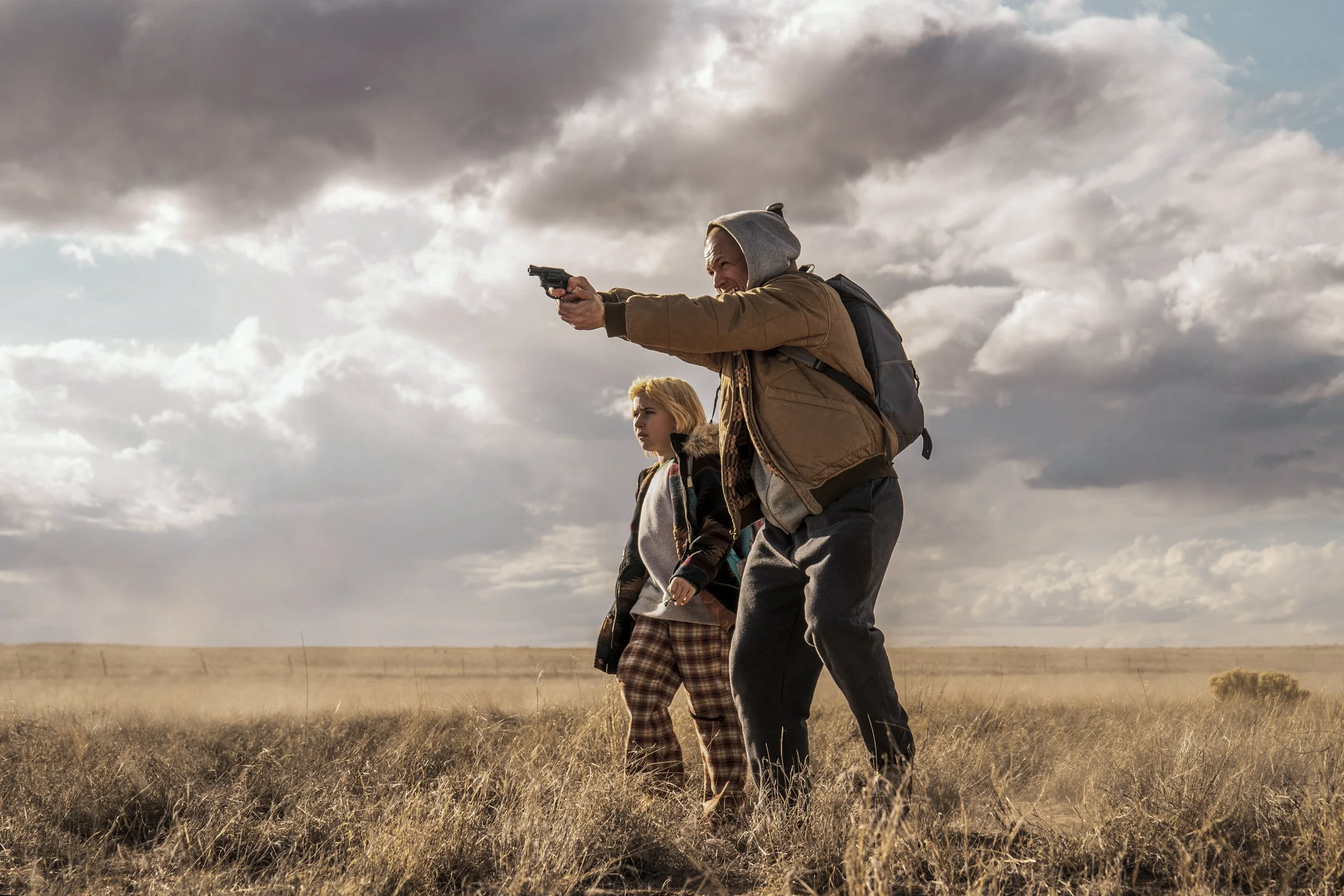'She Rides Shotgun' Review: An Intimate, Unrelenting Father-Daughter Descent Into Violence and Redemption
Courtesy of Lionsgate
In a harrowing, emotionally charged performance, Taron Egerton leads a stark, meditative exploration of trauma, sacrifice, and the imperiled bonds of parenthood in this brutal yet soul-stirring genre piece
She Rides Shotgun, helmed with incisive precision by Nick Rowland (Calm with Horses), emerges as a rare cinematic hybrid—an emotionally authentic survival narrative couched within the volatile architecture of a contemporary Western crime thriller. Adapted from Jordan Harper’s Edgar Award-winning novel, the film evokes both poetic realism and genre fatalism, offering a propulsive yet thematically rich character study defined by desperation, redemption, and filial devotion.
Taron Egerton, in perhaps the most nuanced and emotionally revelatory performance of his career, inhabits Nate—an ex-con whose past is irrevocably stained by violence and whose present is dictated by the singular imperative to safeguard his estranged daughter, Polly. Egerton’s physicality remains ever formidable, but here it is his internal collapse and fragile hope that resonate most profoundly. From the moment Nate collects Polly (Ana Sophia Heger, in an astonishing, career-making turn) from school following the murder of her mother and stepfather, the film eschews conventional notions of reunion. This is not a tale of reconciliation, but of frantic, bone-deep protection and the emergence of a shared identity forged in blood and necessity.
Courtesy of Lionsgate
Their journey unfolds across the vast, sun-scorched isolation of New Mexico—a terrain rendered both mythic and intimate by Rowland’s documentary-style immediacy and striking compositional rigor. Cinematographer Piers McGrail captures the faded pastels of roadside America as both a nostalgic void and a war zone, where motels become holding cells and gas stations turn into crucibles of survival. Violence erupts without warning and with punishing realism, rarely choreographed for cinematic flair but always anchored in emotional consequence. The standout set piece—a sustained tracking shot of Polly darting across a field as bullets shatter the air around her—rivals the best of Cuaron and Greengrass for visceral immersion.
While the film's narrative scaffolding includes familiar genre hallmarks—a duplicitous ex-lover (Odessa A’zion), a morally ambivalent detective (Rob Yang), and a sociopathic sheriff (John Carroll Lynch, malevolently magnetic)—She Rides Shotgun transcends its genre through its relentless emotional authenticity. The screenplay by Harper, Ben Collins, and Luke Piotrowski layers its characters with psychological depth, turning familiar archetypes into vessels of contradiction and humanity. Even its antagonists are textured, haunted by compromises and the slow corrosion of their own ethical boundaries.
Egerton’s Nate, shaped by penitentiary trauma and paternal guilt, is a figure of contradictions—tender but terrifying, attentive yet emotionally stunted. His moments of instruction—teaching Polly to wield a bat for self-defense or urging her to dye her hair as camouflage—are simultaneously heartwarming and horrifying. He is not simply raising her; he is weaponizing her out of sheer necessity. Yet the bond that develops between them is profoundly affecting, steeped in mutual recognition and emerging strength. Egerton locates the tragic dignity in this dynamic, making Nate as vulnerable as he is volatile.
Courtesy of Lionsgate
Ana Sophia Heger’s Polly is nothing short of revelatory. She plays the role not as a victimized child but as an evolving survivor. Her gaze carries both innocence and fatalism; her silence is rarely passive. As Polly becomes both witness to and participant in her father’s descent into violence, Heger maintains a performance of extraordinary emotional control and depth. She is not merely reacting—she is absorbing, calculating, adapting. This is a child turned co-pilot, and the narrative arc is hers as much as Nate’s.
Rob Yang’s portrayal of Detective Troy is defined by moral ambivalence; his agenda is never fully transparent, which lends each of his scenes a compelling sense of menace. John Carroll Lynch, meanwhile, transforms the archetypal crooked sheriff into something mythic and grotesque, a patriarchal figure perverted by power and sadism. His quiet threats carry more weight than any explosion.
Courtesy of Lionsgate
Rowland’s directorial choices reveal a remarkable fluency in both character drama and genre syntax. He allows the violence to linger—not in spectacle, but in aftermath. Gunshots resonate less as climactic moments and more as ruptures in human continuity. His pacing, while deliberate, serves the film’s slow-burning descent into emotional co-dependence and psychological unraveling. The final sequence, a prolonged standoff drenched in blood and dusk, is less an action set piece than a tragic resolution—an existential choice between destruction and grace.
POPULAR ON THE CINEMA GROUP
The production design subtly reinforces the film’s dual identity. Interiors are claustrophobic, tinged with decay; exteriors suggest escape yet deliver only further entrapment. The score, restrained and ambient, functions as an echo of the characters’ interior states—never intrusive, always suggestive.
She Rides Shotgun is not merely a crime thriller. It is a film about trauma inheritance, the corporeal cost of survival, and the possibility of moral clarity emerging from within the mire. It finds poetry in violence, redemption in action, and emotional truth in genre tropes. Above all, it gives us two unforgettable characters whose shared odyssey strips them bare—then builds them back up into something resembling hope.



















